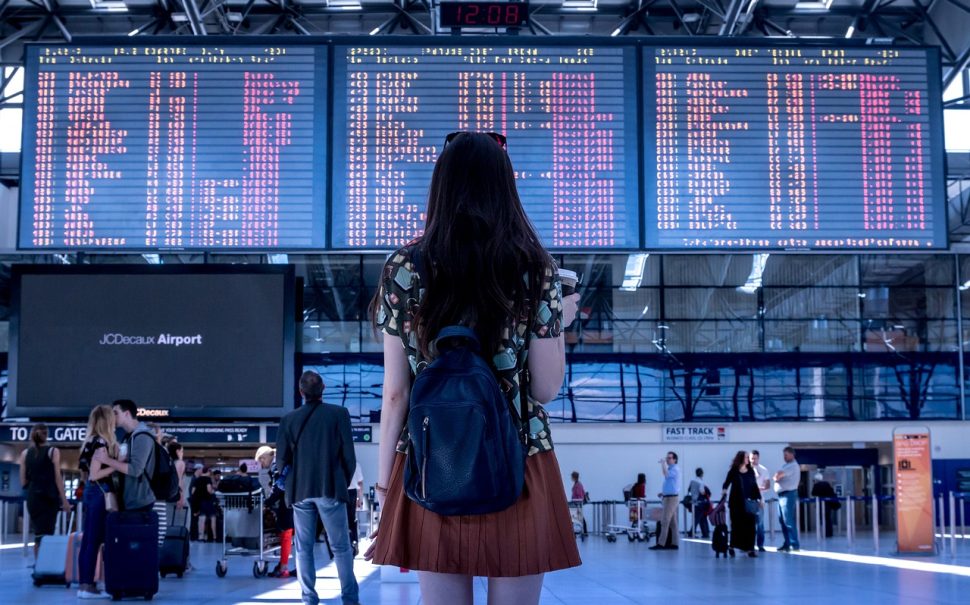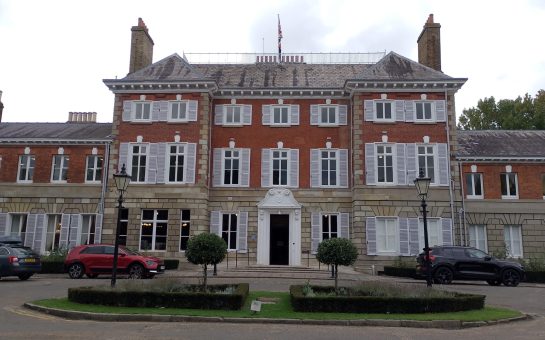Gatwick Airport was the worst airport to fly from for Londoners in terms of delayed and cancelled flights last year, according to data.
The airport has average delays of over half an hour for departures, and almost one in every 14 flights (6.7%) was cancelled, according to our analysis of Civil Aviation Authority data.
The UK average for last year was just 24.5 minutes for departure delays, and 2.5% of all outbound flights were cancelled.
A London Gatwick spokesperson said: “As the most efficient single runway airport in the world, we aim to deliver a seamless passenger experience.
“The majority of delays are caused by poor weather, airspace constraints across Europe and third party ground operations. We are working closely with our airline partners to improve on time performance.
“In addition, we have published a six-year Capital Investment Programme setting out significant improvements to develop and enhance infrastructure and facilities to build the resilience of the airport.”
For those booking last-minute getaways, we can reveal which other London airports are likely to run on time, and which airlines will get you to your destination without keeping you stuck on the tarmac.
As you can see, London City Airport performed best in terms of delays, with just an average of 16.9 minutes per departure, but had the second highest cancellation rate of 4.1%.
London Stansted Airport evened out well with just 19.7 minutes of delays on average, the second best, and had just 1.2% of flights cancelled.
London Luton Airport may be great for flights not being cancelled (1.2%), but you may be stuck at the airport longer than you wish as it averaged delays of 25.4 minutes.
London Heathrow Airport, the largest airport in the country, managed a reasonable 2.5% of cancellations, in line with the UK average, but its flights left the ground on average about 25.8 minutes late.
These delays can happen for a multitude of reasons, said Ally Murphy, a former cabin service supervisor for Virgin Atlantic.
She added that there could be technical faults on the ground, a fault with the aircraft, or even just knock-on effects from other delayed inbound flights.
Sometimes, she said, flights can also be delayed for passengers although airlines try their best not to do this as it can cost thousands of pounds for even just a few minutes of delay.
But crucially, she shone lights on how cuts across aviation have in-fact led to costly delays.
She said: “Accountants take over as CEOs of airlines and then it’s all about the money rather than the experience.
“They cut crew, they cut staff, they pack seats in, they make schedules really tight.
“There’s no wiggle room.
“If something is delayed for any reason, there’s no spare plane, there’s no spare crew, there’s nothing to alleviate those delays.”
So, it could be that airlines who have managed to avoid these cuts are better suited to managing potential delay risks.
Because ultimately, delays such as bad weather or airport-wide issues will affect all airlines equally, meaning their best way to improve punctuality could be through providing an adequate level of services.
The data seems to support this, as the range of airline performance was drastic.
Airlines such as Gulf Air managed a delay of just seven minutes per departure throughout 2023, the best of any airline, with Oman Air, Sun Air of Scandinavia, and China Southern coming in a joint close second at eight minutes.
On the other end of the spectrum, you may be wise to avoid Freebird Airlines, Tunisair, and Fly One who all kept their flights on the ground for an extra hour on average before finally setting off.
A spokesperson for Freebird Airlines, whose sole UK route is Gatwick to Antalya in the summer, said: “Since the invasion of Ukraine, all flights from all destinations to Antalya in Turkey have been impacted by the necessity to fly slightly different routes to avoid Ukrainian (and Russian) airspace.
“This can often result in congestion coming into Antalya, leading to occasional delays.
“However, we at Freebird know and recognise how frustrating it is for our customers to suffer delays and every year we invest more in our operations in London Gatwick and Antalya in order to minimise delays and continually improve our customer service.”
They also added that Gatwick, being one of the busiest single runway airports in the world, can occasionally pose operational issues for all airlines operating there.
Of the big guns, Virgin Atlantic stood out as a great performer with just 0.9% of flights cancelled in the year and an average delay of less than 15 minutes.
British Airways fared poorly against Virgin, coming in with a cancellation rate of 3%, more than three times that of its transatlantic competitor.
In terms of delays, the British flag carrier had its passengers waiting around 25 minutes more for departures than their scheduled time.
Ryanair, the airline people love to hate, performed surprisingly well in its performance statistics.
Despite operating nearly 70000 flights last year, only 209 were ever cancelled, giving a cancellation rate of just 0.3%.
On top of this, their average departure delay was just around 18 minutes.
Both EasyJet and WizzAir fared worse than their main budget competitor, and had average delays of 23.6 and 27.6 minutes respectively.
One of the reasons Ryanair performed so well is that their primary base is at Stansted Airport, which is far less congested than say Heathrow, where Ryanair do not operate from.
Additionally, their lack of amenities on board means there’s less to be cleaned between flights and also less technical failures that could occur to delay a departure (e.g. an inflight entertainment system fault).
For why British Airways appears to perform worse than Virgin, Murphy highlighted BAs sheer size and that as part of their larger operations, compared to Virgin, it was inevitable that they would have more delays.
She also added that sometimes flights may be cancelled due to a lack of crew due to tightened schedules.
These tightened schedules, she said, have happened since the pandemic as airlines have cut crew rests, as part of a decade-long attempt to increase profit.
For example, where you used to get 48 hours of rest on flights from the UK to the US west coast, you now just get one night’s rest, she added.
It could be, Murphy guessed, that some flights would end up being delayed by 24 hours or so in order to provide adequate rest for the crew.
She also said there were generally less crew on board these days, meaning the flexibility to find other staff to fill in for gaps is harder, meaning more flights end up getting delayed and cancelled from this lack of personnel.
If you are delayed on your holidays this year, you may be entitled to compensation.
Visit the Civil Aviation Authority’s website for guidance on how to claim and what rights you are entitled to if your flight is delayed over two hours: https://www.caa.co.uk/passengers-and-public/resolving-travel-problems/delays-and-cancellations/delays/
British Airways, TUI, and Virgin Atlantic were also approached for comment.
Featured Image Credit: JESHOOTS-Com on Pixabay





